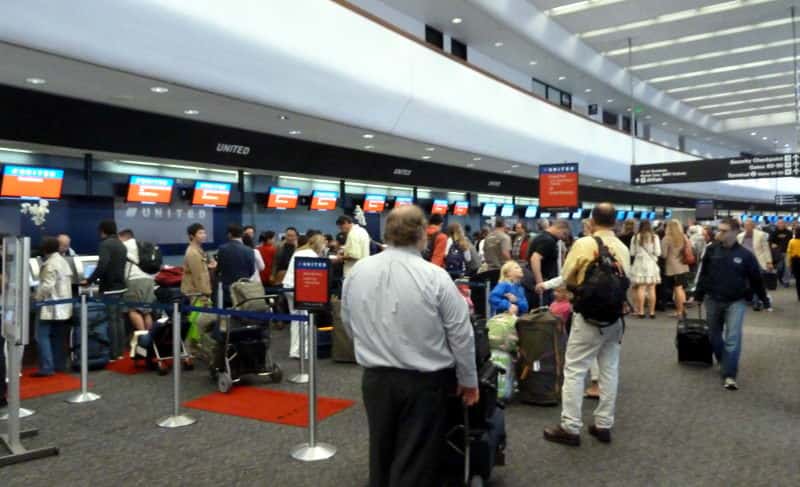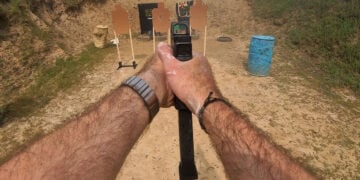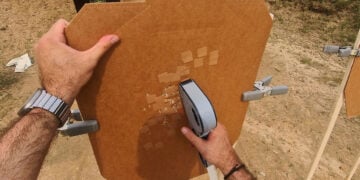
A lot of responsible concealed carriers have gotten themselves in trouble. They didn’t pay attention when they were crossing state lines. All it takes is getting pulled over once and failing to do all of these five things in order to wind up in a hot mess of legal trouble. Concealed carriers, be advised, ignore these five tips at your own peril.
1. Concealed Carry Reciprocity – Do You Have It?
Before you drive across that state line, do you know if that state honors your state’s concealed carry permit? Unfortunately, there is no one concealed carry permit issued by one state that has reciprocity across all fifty plus the District of Columbia. It’s because of this that you need to do your homework to find out which states acknowledge your state’s concealed carry permit.
Some states have no reciprocity. These following states, for example, only honor their own concealed carry permits.
- California
- Hawaii
- Maryland
- New Jersey
- New York
If you have your concealed carry permit on you and you don’t have a resident concealed carry permit issued by that state when you’re in it – you’re in the wrong.
Good Rule: Before you leave, check your route across the states. If you cross into a state that doesn’t honor your state’s CCW, check rule #2.
2. Vehicle Gun Safes – How Do You Plan To Lock Up Your Guns?
Some states require you to lock up your firearms when not in use. If you are driving across state lines, it’s a good idea to bring a locking case. Not only can a vehicle gun safe help secure your concealed carry firearms when you’re not using them – it’s peace of mind when dealing with law enforcement in gun-restrictive states.
Good Rule: If you run into a state that doesn’t share reciprocity with yours, store your unloaded firearm in a separate locked container apart from the ammunition in the trunk of your vehicle. That way, you can claim the Firearm Owners Protection Act.
3. Do You Have A Duty To Inform?
In some states, if you’re asked for your concealed carry permit by law enforcement, you have to show proof. In most cases, this is just your valid concealed carry permit from your state. Did you know, though, that some states require you to inform a police officer before he asks? Are you traveling through one of those states? If you are, you need to notify law enforcement prior to them asking.
These are just some of the states require you to tell the police officer (or law enforcement official) that you are armed.
There are probably other states that require you to inform law enforcement but all states require you to hand over your concealed carry permit if asked.
Good Rule: When pulled over by a police officer, hand over your concealed carry permit alongside your driver’s license and registration. This lets him know you are a valid concealed carry permit holder.
4. Are You In A State That Restricts Magazine Capacity?
As weird as this is – some states have strict regulation on the size of magazines for pistols and rifles. If you are in a state that says it’s not okay to have a magazine for a pistol with more than 10 rounds, don’t bring a magazine that holds more than 10 rounds. As inconvenient as this is, it can save you a lot of heartache. Law enforcement will have to confiscate those magazines if they see them.
Good Rule: Check the states you’ll be traveling through to make sure they don’t have magazine restrictions. If they do, don’t bring those magazines.
5. Frequently Fly? Bring Your Firearms Through Checked Baggage.
As long as your concealed carry firearm is unloaded and stored in a locked container, you should be able to check it as baggage through either the airlines or Amtrak. Neither will let you bring your concealed carry pistol or revolver with you as carry on but they will let you transport it. Your ammunition needs to be stored in its original box – not in the magazine.
If you’ve followed all the previous four rules, such as:
- checking reciprocity with your destination
- a safe place to store your firearm
- knowing your duty to inform
- knowing if your destination has magazine restrictions
then five is going to be easy. As long as you inform the clerk during the check-in process, he or she will be able to walk you through the process.
Good Rule: Inform the clerk at the baggage counter that you want to transport your firearm through checked baggage. He or she will guide you through the rest of the process. Also check the website of the particular airline you are using, as each of them have slightly different rules.
And if you need to mail your concealed carry firearm to your destination – make sure to ship from a business with a Federal Firearm License to another business with an FFL. This is the easiest way to ensure your firearm reaches its final destination.
These five tips will reduce 95% of the headache and stress of crossing state lines with your concealed carry pistol or revolver. Ultimately, though, it’s up to you to do the research to ensure you stay on the right side of the law. And if you live in a constitutional carry state, your state still has an issuing process for moving across state lines. Check it out before doing so.









